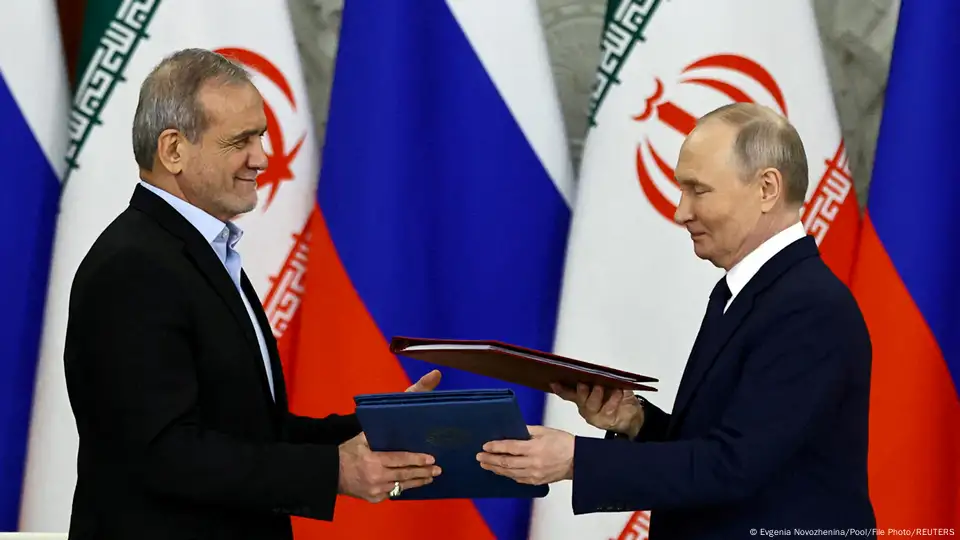Russian President Vladimir Putin has thrust himself into the center of the spiraling conflict between Israel and Iran, raising the stakes in a crisis that has ignited fears of a broader war, potentially even World War III. As Israeli and United States airstrikes pound Iranian nuclear facilities and Tehran retaliates with missile barrages, Putin’s unexpected role as a self-styled mediator has drawn intense scrutiny, with analysts warning that his involvement could either defuse the situation or pour fuel on an already volatile fire.
The conflict, now in its second week, erupted when Israel launched a series of precision strikes on June 13, 2025, targeting Iran’s nuclear infrastructure, including the heavily fortified Fordow uranium enrichment facility. Israel’s stated aim: to cripple Iran’s alleged pursuit of nuclear weapons, a charge Tehran denies. Iran responded with missile attacks, one of which struck Soroka Medical Center, Israel’s largest hospital in the south, killing dozens and intensifying global alarm.
Putin, speaking at the St. Petersburg International Economic Forum on June 20, expressed deep concern over the “disturbing” developments, particularly around Iran’s nuclear sites, where Russian specialists are aiding construction of two reactors at the Bushehr plant. “We are strongly worried about what’s going on around the Iranian nuclear facilities and possible consequences,” he said, emphasizing Russia’s unique position due to its longstanding ties with both Israel and Iran.
Russia’s relationship with Iran deepened with a strategic partnership signed earlier this year, though it lacks a mutual defense clause. Moscow has relied on Iranian drones and missiles for its war in Ukraine, but Putin has stopped short of pledging military support to Tehran. Meanwhile, Russia maintains warm relations with Israel, a delicate balance that Putin now leverages to propose mediation. “We are not imposing anything on anyone; we are simply talking about how we see a possible way out of the situation,” he said, noting that Moscow has shared peace proposals with both sides and the United States.
The Specter of World War III
The crisis has sparked widespread fears of a global conflict. A prominent Russian general, Maj-Gen Apti Alaudinov, declared on June 13 that “World War III has already begun,” urging the Kremlin to mobilize a million troops. While analysts dismiss such rhetoric as posturing, the sentiment reflects the precariousness of the moment.
Read also:
- Trump appeasing Putin with pressure on Ukraine – Biden
- Putin is open to dialogue with Germany’s Scholz, says Kremlin spokesman Peskov
- Pope wants to meet Putin in Moscow over Ukraine war
U.S. President Donald Trump’s shifting stance has further complicated the situation. Initially distancing himself from Israel’s strikes, Trump has since adopted a belligerent tone, repositioning U.S. forces in the Middle East and issuing an ominous warning for Tehran’s 9.5 million residents to “evacuate immediately.” He has also floated the possibility of striking Fordow with U.S. bunker-buster bombs, a move that could draw Washington directly into the conflict.
Putin, in a pointed rebuke, dismissed speculation about U.S. or Israeli plans to assassinate Iran’s Supreme Leader Ayatollah Ali Khamenei, saying, “I don’t even want to discuss such a possibility.” He warned that such actions would destabilize the region and consolidate Iranian resolve.
A Geopolitical Chessboard
Putin’s mediation offer is not without self-interest. Russia, strained by its ongoing war in Ukraine, sees the Middle East crisis as both a distraction from its own troubles and an opportunity to reassert influence. A surge in oil prices triggered by the conflict has bolstered Moscow’s coffers, easing the bite of Western sanctions. Some Russian analysts even suggest Putin could use Iran as a bargaining chip to secure U.S. concessions in Ukraine, a notion floated by influential tycoon Konstantin Malofeyev: “Only a summit between Russia and the U.S. can keep the world from catastrophe.”
Yet, Russia’s ability to broker peace is questionable. European leaders have dismissed Putin’s mediation offer, and Trump rebuffed it, telling reporters, “Vladimir, let’s mediate Russia first, you can worry about this later.” Meanwhile, Iran’s foreign minister, Abbas Araghchi, insisted Tehran has no intention of pursuing nuclear weapons, calling Israel’s attacks “an unforgivable crime.” The International Atomic Energy Agency, unable to verify Iran’s uranium stockpile amid the chaos, has raised concerns about the risk of nuclear escalation.
The international community is on edge. Qatar and Oman condemned U.S. strikes on Iranian nuclear sites on June 22, warning of “catastrophic consequences.” Russia’s Foreign Ministry called the attacks a violation of international law, while Chile’s President Gabriel Boric labeled them “illegal.” On X, posts reflect public anxiety, with some users speculating about Putin’s motives and others amplifying fears of a global war. One user wrote, “Putin’s playing both sides, but this could spiral out of control fast.”
Analysts warn that Israel’s objective of eliminating Iran’s ballistic missile capabilities, coupled with U.S. threats, could push Tehran to accelerate its nuclear program rather than abandon it. “Israel’s attacks may incentivize Iran to develop a nuclear weapon,” noted Middle East expert Marianna Belenkaya.
As the world holds its breath, Putin’s next moves will be critical. Will he succeed in brokering a deal that allows Iran to maintain a peaceful nuclear program while addressing Israel’s security concerns? Or will his involvement deepen the mistrust, edging the world closer to the abyss? For now, Moscow’s proposals are under discussion, with Putin maintaining near-daily contact with Iranian officials.
The crisis underscores a chilling reality: in a world fractured by competing powers, a miscalculation could ignite a conflict with unimaginable consequences. As one Russian academic put it, “The limits of stability are unclear, and that’s the most dangerous question of all.”
